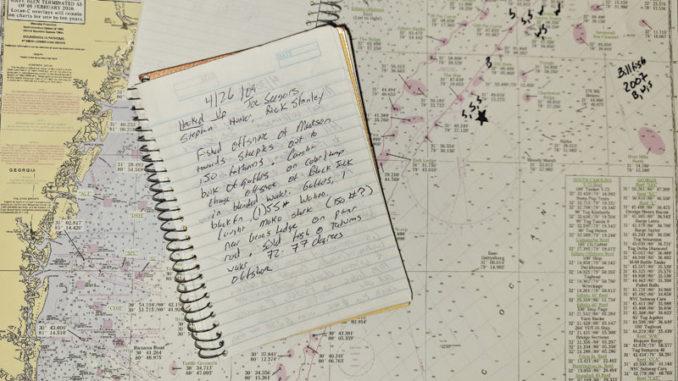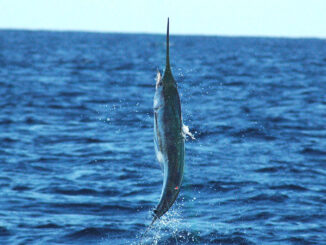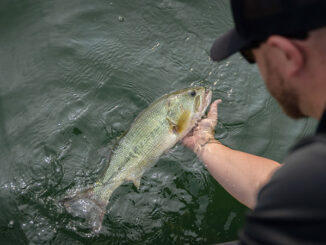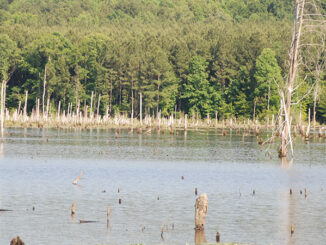
A fishing log will help you catch more fish
When you get back to the dock after a day on the water, it often seems like the fun ends and the work begins. You hopefully have fish to filet, a boat to clean, and gear to go through, repair, and make ready for the next trip.
And it often means a long trip from the ramp back to wherever you call home.
Trailering a boat home safely, often in the dark and on narrow backroads is a job in itself. Ultimately, it can lead to a pretty tired captain thinking only about how to get into bed with the least amount of hassle. However, it’s in every fisherman’s best interest to not forget one last thing. It’s time to take notes and fill out your fishing log.
Keeping a log of your days on the water may not sound like the most fun thing to do before closing your eyelids. But it will pay tremendous dividends in the long run.
Keeping a good fishing log isn’t just writing down how many fish you caught, how big they were, what you caught them on, and where you caught them. Record any details about the day that stood out from the normal, and any observations you made while you were catching fish (or NOT catching fish) that you think made the difference.
Things like tides, phase of the moon, concentrations of bait, water temperature, clarity, and depth all factor into whether or not you find hungry fish. So any detail that you can remember, jot it down. Write down new numbers or sets of new numbers that you came across and marked in your GPS. Later, when you start to read over old entries, you’ll start to spot trends that you never even considered. Truly, no detail is too small.
No detail is too small
Incorporating copies of a marine chart, especially one with accurate contour lines, with a series of dates and water temperatures, including what you caught in symbols or shorthand (so as not to clutter up the charts) is another way to track trends over time, especially if you are fishing offshore and covering a lot of different areas.
When I was fishing a lot of king mackerel tournaments, looking at a series of these charts gave a lot of insight over what depth to start looking for bait concentrations when the water hit a certain temperature. I can’t say that it ever paid me off with a first-place fish, as I always seemed snakebitten when it came to catching a winner with big money. But it led to a lot of consistent fishing and a great game plan on the charter boat, where getting action is just about the most important thing.
Just like with the rest of society, online logs and apps are now available. I feel that these programs have their place in the fishing world. But they often seem like another type of social media with a focus on sharing photos of outstanding catches or your friends on the boat.
Having an electronic log certainly has its merits due to how much information you can store on a device like a cell phone, the cloud, or a USB drive. I may experiment with this concept more going forward. But I want to use a medium where I can make the ultimate decision on what outside parties can have access to. I don’t mind helping my fellow fishermen with a bit of a steer toward where I think the fish will bite, or what conditions I’ll be looking for.
Use whatever medium works for you
Am I going to give just anyone the latitude and longitude of my favorite fall grouper hole? Would you?
My venerable old paper logs and chart copies ensure that my “secrets” stay secret, unless someone breaks into my house and gets in my safe. As far as photos go, I’m usually fine with sharing whatever, just so long as there isn’t a clear view of the chartplotter in the frame. My point is, I just want to be in control of what knowledge I do share. A spiral bound notebook solves that issue for me entirely.
At the end of the day, saving and cataloging information is a really important step in becoming a more consistent fisherman. Once that information is in place, you then need to take the next step, which is identifying the important stuff and using it to form strategies. Take the extra time before bed to get it into whatever format works the best for you while it’s still fresh in your head. You’ll be amazed at how quickly important information jumps off the page when you go through a season or two of your old fishing log entries.




Be the first to comment